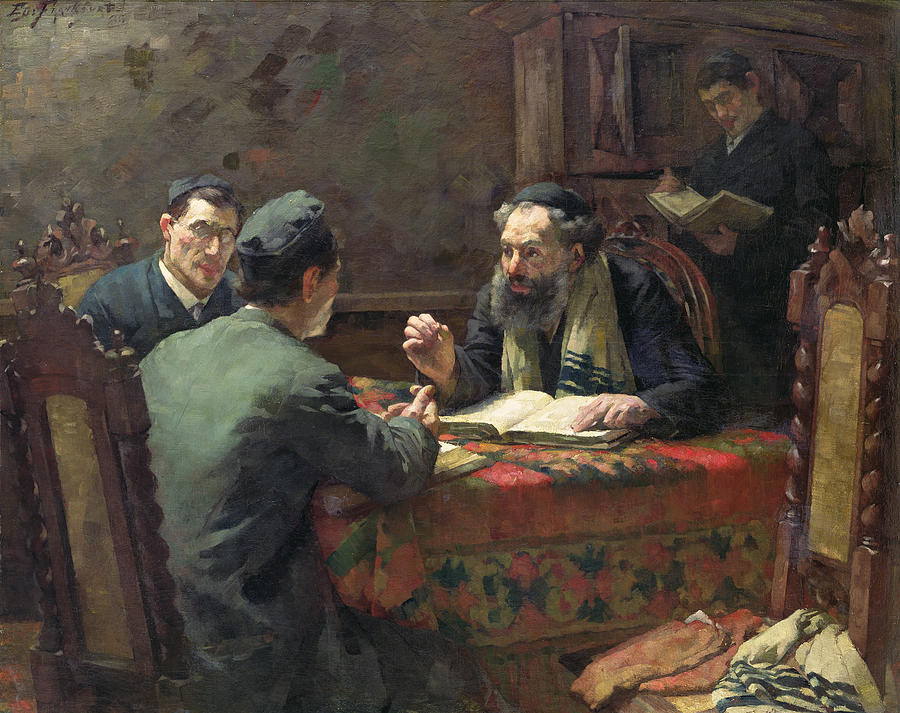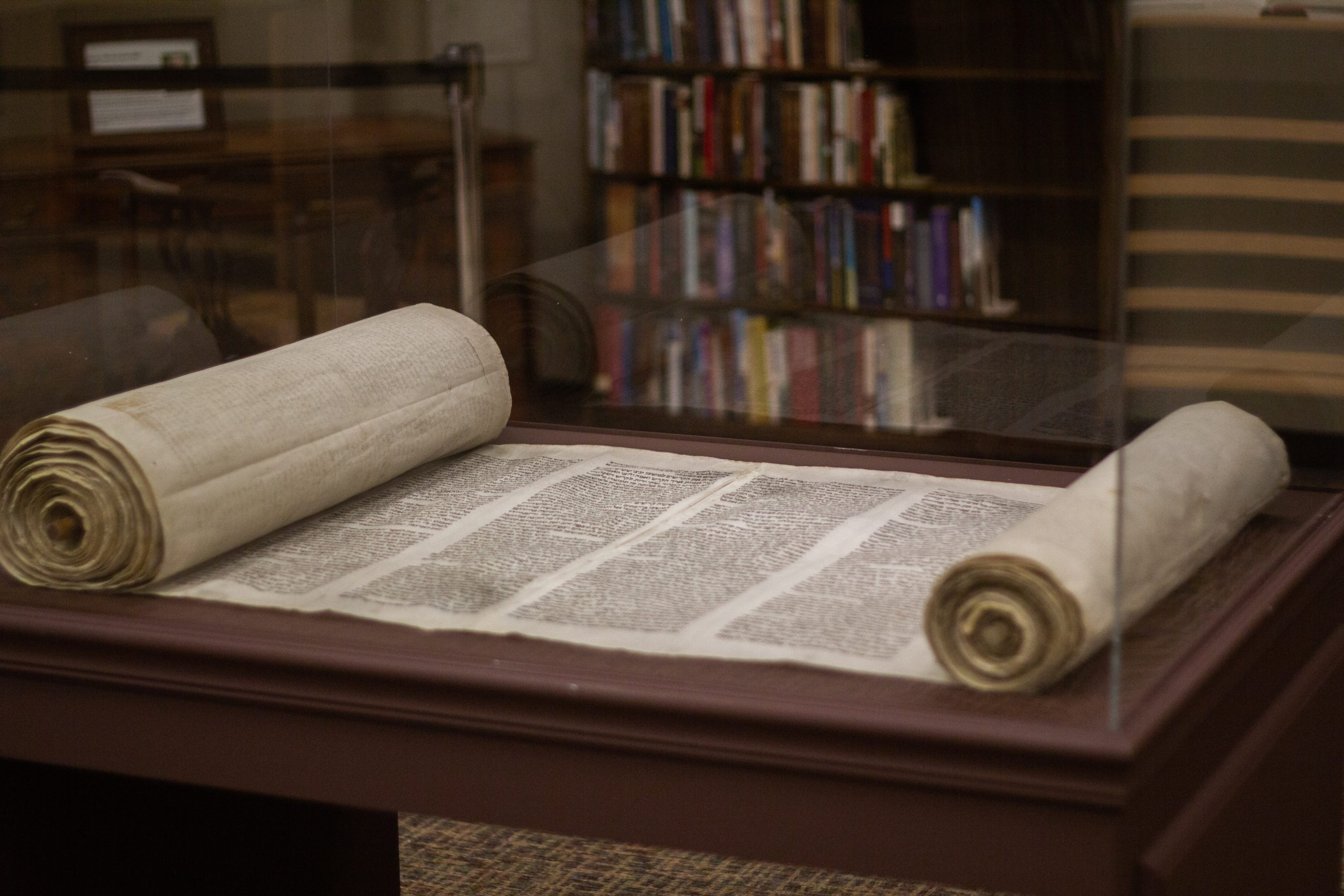I am a rabbi by career who promotes and provides Judaism to Jews of religious and unaffiliated backgrounds. For those who know me, this may seem paradoxical. I don’t necessarily believe in some of what are considered the fundamental tenets of Judaism. Some basic beliefs, such as the infallibility of Tanakh and the literal accuracy of the mesora (tradition), I outright reject. I may even go as far as saying that Moses didn’t write (all of) the Five Books of Moses. Yet still – I am a Rabbi and a proud religious Jew. As much as I hate labels, I can say that I’m not a Reform or Conservative Rabbi. I’m a Halacha-practicing Jew who questions the basics of Judaism and rejects much of its theology and claimed history.
How I ended up here is a 10-year long story; many days of researching and many nights of pondering the unknown. I began with a teenager’s quest to evaluate the truths of their childhood religion. I read books, researched online, debated people, and compiled the results of my research in the articles of this website.
The results of my research can hardly be called results. If there’s one thing I learned the most from my research is the limitation of the human mind to make sense of a world unknown to us. I believe in spirituality but am clueless of its nature. I believe in the divine destiny of the Jewish people yet am ignorant of how it’s played out. I believe in the divine infusion of Judaism, yet, ironically perhaps, I accept the academic opinion of the man-made origins of Torah and Judaism. I am still trying to make sense of these seemingly conflicting approaches, yet I still find incredibly strong evidence for both the human and divine element in Judaism and the development of Torah. How those two interconnect is a mystery for me no matter how much I research.
My staunch belief in divinity is based on several indicators. There are the personal miracles I’ve experienced in my life that are unexplainable without the acknowledgment of a divine force in this world. I say that with all sincerity and with all the skeptical syncism I usually have. I decided not to write about these experiences due to their personal touch and the fact that I don’t expect others to believe my storytelling. There’s also the miracle-stories of others, some of which I am skeptical about and others which I am not. Growing up in a Chabad community, there was no shortage of mind-boggling miracle-stories retold about the Lubavitcher Rebbe and his supernatural abilities. These are stories that even my skeptical analytical approach couldn’t dismiss as human imagination.
From a historical perspective, the Jewish national experience is truly a marvel and an indicator of a divine hand playing the world. The unparalleled story of Jewish survival throughout the many ages and attempts to destroy it, is truly an unimaginable story for the people living thousands of years ago. Yet this exact unparalleled history of the Jews is predicted in the form of prophecy in the book of Deuteronomy. Deuteronomy predicts the exile, dispersion, persecution, survival, and return to the land, among other things. This argument, with its merits and weaknesses, is discussed at length here. For me, this is yet another indicator of the divine element in Judaism. (The irony is that I believe that Deuteronomy is a post-Mosaic man-made work.[1] Was man prophesying with a divine power to predict the future?)
But on the other hand, after many years of researching the evidence available from history, archeology, and bible analysis, I’ve come to the same conclusion as the majority of experts on this matter: Judaism was man-made and evolved over the years. This was a tough reality to accept given my strongly religious upbringing and values that were ingrained in me from childhood.
These paradoxical views are not inherently at odds with each other. Perhaps (some of) the men involved in the formation of Judaism had some divine insights (a form of prophecy), thus resulting in a man-made religion with divine elements in it. Perhaps Judaism is a mixture of legend, propaganda, and errors – in addition to containing deep divine secrets. The truth is we can only speculate; we cannot know anything for certain. God works in mysterious ways and we will possibly never know why He hides His existence from us, only giving us clues every here and there to let us know we are not alone here with nature. For a deeper discussion into this idea, see here.
I was raised with a deep sense of mission in making the world a better place; it’s like a divine calling that goes beyond our often self-centered secular culture. So as I had my faith crisis, I began to reevaluate my sense of mission in this world. Is there meaning in teaching a religion that I only partially believe in? I grappled with this question for a while, until I eventually concluded that it is my moral, ethical, and even humanistic calling to teach and cater Judaism to those seeking it.
I firmly believe that aside from the divine elements within Judaism, there’s also pragmatic benefits of religion in general and Judaism in specific – further encouraging me to teach Judaism as a Rabbi. There are the benefits of belonging to a community, increased family structure and stability, Shabbat and holidays, general meaning in life, moral character development, ritual and societal structure, hope, optimism, and prayer, as well as leading to higher happiness indexes. Of course there are negative parts to Judaism as well, but we can decide to filter and focus exclusively on the many positive aspects. This idea is discussed at length here.
Teaching and catering a religion that I am skeptical of is challenging, but I find purpose in helping people find their spiritual roots and enhancing their lives overall. It is my honor and privilege to teach and promote the religion that brands me a heretic. Hopefully Judaism can forgive my innocent heretical views by the merit of my Jewish lifestyle and the catering of Judaism to thousands of other Jews.





I would love to see an article about how you can hanged your approach over the years, and what evidence caused you to do so. There’s a remarkable difference between the earliest articles and later ones on the site.